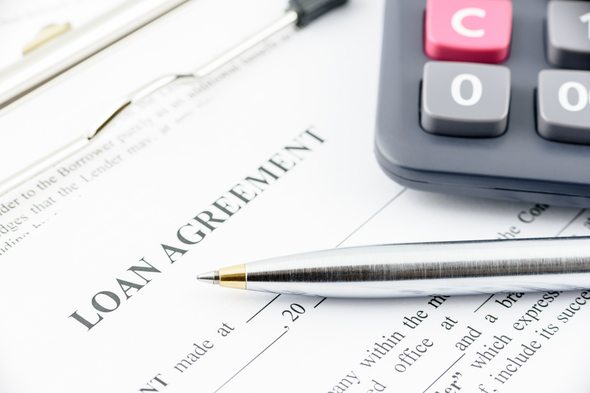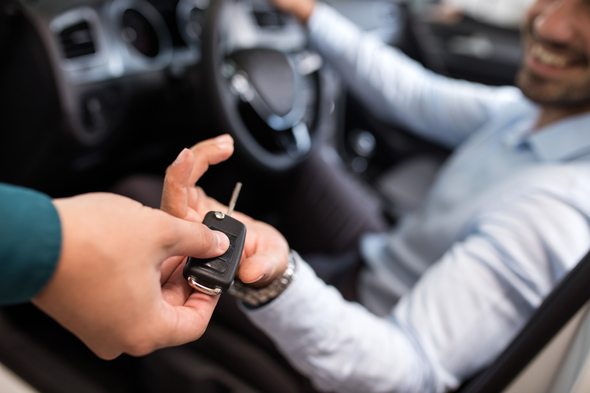With payment plans, buying a car can be a reasonably affordable venture. The average monthly payment for a new car is around $480, according to Experian Automotive. A used car, on the other hand, will set you back around $360 a month. But what if you want to pay your car loan with a credit card. Is that possible? The short answer is yes but the longer answer is more complicated.
Consider working with a financial advisor as you weigh car-buying opportunities to ensure that you are handling your personal finances wisely.
Can You Pay a Car Loan With a Credit Card?
Whether you can make your car payment with a credit card will depend on your auto loan lender. Some lenders will accept credit card payments with no problem. Other lenders will accept credit cards, but will charge a hefty processing fee. In that case, you’ll have to calculate whether paying with your credit card is worth the fee. Many lenders, though, don’t allow direct payment by credit card.
However, there is a way around that limitation. You could use a 0% APR credit card. These cards come with a limited period (often six – 18 months) of 0% interest, allowing you to pay off your loan without accruing interest. Once you have this credit card, you can transfer your auto loan balance to the card, called a balance transfer. If you can finish paying off your car payments in full during that introductory period, you won’t accrue any interest on your loan’s total. The balance transfer can save you money and pay off your loan, but only if you have a repayment plan that you stick to.
You could also make your car payments with a credit card through a cash advance. A cash advance involves withdrawing cash with your credit card. This is different from withdrawing cash with a debit card, though, since a cash advance isn’t technically your own money. Because of this, cash advances come with high fees and even higher interest rates. Plus, interest begins accruing immediately. If you’re already struggling to make your car payments, using a cash advance probably won’t be the best financial move.
You technically can make your car payments with a credit card in some shape or form. However, there are definitely pros and cons to this method.
Pros of Paying a Car Loan With a Credit Card

By transferring your auto loan’s balance to a 0% APR credit card, you could save hundreds in interest charges. Not only that, but you get to pay off your car faster, too. It’s important to note that this method transforms your auto loan from a secured loan into an unsecured loan as revolving credit. As a secured loan, your car served as collateral, meaning it could be repossessed if you failed to make payments. But with your car payments on a credit card, you no longer risk losing your car.
Having your auto loan transformed to revolving credit also offers its own perks. Revolving credit means you can carry over a balance from statement to statement. This alone doesn’t incur a penalty as long as you pay at least the minimum amount on your statement. This kind of flexibility in repayment can be a huge asset to you.
However, while carrying a balance and paying the minimum keeps you afloat, that’s how many people end up in serious credit card debt. Before you know it, you could owe even more than your original loan was worth because you failed to pay it off fast enough. If you use this method, you should be sure that you can afford to pay off the entire loan before the 0% period ends. That way you can avoid a huge interest hit.
Cons of Paying a Car Loan With a Credit Card
A huge disadvantage to paying off an auto loan with a credit card is the potential harm it could do to your credit score. Credit reporting agencies view revolving debt, a type of unsecured debt, much less favorably than secured loans. So even if you’re making your payments on time, it won’t boost your score as much. Plus, since you’ll no doubt be placing a rather large balance on your card, your overall credit utilization will increase drastically. Your credit utilization ratio plays a big part in your score. When you use too much of your available credit, your credit score usually sees a drop. This could then affect your interest rates on any future loans or credit cards you might apply for.
A typical 0% introductory APR offer lasts about six to 18 months, so you won’t have an interest-free loan forever. Interest will start accruing eventually, and you’ll need to pay off the loan before it does. If you can’t repay the balance of your loan within that time, you could end up paying more interest than you would’ve on your original loan.
It’s also important to note that using a 0% APR credit card isn’t a readily available option to everyone. These cards often require a very good or excellent credit score for approval.
Bottom Line

Paying off a loan by taking on another loan is always a risky decision. In order for it to work, you have to repay and spend incredibly responsibly. Before you even think about this method, you should thoroughly assess your financial situation. That way, you can prepare yourself and your finances for the responsibility that comes with paying off any loan.
Personal Finance Tips
- A financial advisor can help you create a financial plan and figure out what’s best for you given your income and expenses. Finding a qualified financial advisor doesn’t have to be hard. SmartAsset’s free tool matches you with up to three financial advisors who serve your area, and you can interview your advisor matches at no cost to decide which one is right for you. If you’re ready to find an advisor who can help you achieve your financial goals, get started now.
- Before you actually begin the card application process, take stock of your monthly budget looking at income and expenses. Most 0% APR credit cards will have six- to 18-month balance transfer options. Determine whether you can feasibly pay off your loan within the given time and make sure you get one of the best balance transfer credit cards to help you.
- If you do end up getting a 0% APR credit card, be sure to read over the card’s agreement papers. In the event that you don’t repay the whole loan before the introductory period ends, many credit card issuers can charge you interest on the whole balance, not just what’s left. Also pay attention to the balance transfer APR after the intro period. That will give you an idea of how expensive things could get if you have to start paying interest.
Photo credits: ©iStock.com/skynesher, ©iStock.com/PeopleImages, ©iStock.com/William_Potter
